Barton Creek Cave
Don’t depend on Google Maps
after a relaxing start up we are
finally ready to go and barely leaving San Ignacio we came to a Police
Checkpoint and today they didn’t want to know anything. After turning of in
Georgeville the gravel road starts. First it was a fairly good road (for
Belizean standards). Except Gine freaked out about Google maps today, first it
wanted us to go over the bridge which is
a one way and we can’t go there against the traffic – so during the drive out
of San Igancio we had to constantly ignore it, since it always wanted us to go
a 5 km detour so we can go against the one way over the bridge and then I don’t
know why it wanted us to go to that one farm – it says turn: and there is a
gate to a farm – and it says turn around because it wanted us to go through the
farm – finally she found the Barton Creek Road but still wanted us to do a 10
km detour from the road to go to the farm!!! that means even when using Google
map use your own brains and look on a map.
Driving through the river
And then comes the river crossing
after some steep big rock and big holes 4x4 hills up and down – it was super
cool, there was even a wheel in the water which we think makes electricity, and
then comes the bridge, it looked so cool, so that Gine said I will make pictures
– but when I was in the car on the way back it is a super creepy bridge because
it goes up so high that at some point you can’t see the bridge – only: the
bridge is not very wide and the wooden boards on the site are quite rotten and
from the bridge down onto the rocks is another be careful how you drive. That
is one big adventure.
We meet Mike
When Gine originally looked into going
to the Barton Creek most were offered as pricy tours, until I found Mike’s
Place. I emailed him and he said you can come by we are always open, no
pre-booking needed. And on the webpage there is a picture of a guy with
mustache and hat and Gine thought looks like “Indiana jones” that must be a
cool place. And we met Mike and yes that picture is Mike when he was younger.
As we talked with him, we learned a
lot, Mike came here 30 years ago like in 1990: at that time it took from the
western highway 12 hours to reach this place – so for him this is today like a
highway. He is married to a 36-year younger local women and we learned that if
you are a white “rich” guy the local woman will always try to become your
mistress so that they get what the wives have – as well a lot of older white
women have young black guys around them and according to him, it is very
common. Also he told us that a lot of American and Canadian come and buy a
place and then they realize they are not able to live here and sell it (yes we
saw a lot of for sale signs), one big issue in his opinion is that white women do not find equal women here,
the locals are a different culture. As for Healthcare he said driving 1.5 hrs
to Flores in Guatemala and you will find the best private hospitals super cheap
(for our standards) and they look really well after you.
He has in the middle of nowhere a
beautiful place and he loves it here.
What’s special about the Barton Creek
Cave:
- it is named Barton because when they named the cave the guy owning the property was called Barton
- the whole cave is 7 miles long, you can paddle 1 mile into it
- it is one of the caves the Mayan used for rituals and sacrifices – but only the elite was allowed to go in
- in this cathedral like cave with a lot of stalagmites and stalactites they found also human remains and a lot of pottery
- the Mayans believed that Chac the rain-god occupied the cave and in drought times they paddled in and sacrificed young virgins here
- we also learned more about the blood letting and the most powerful is if a guy gets his penis cut off – or a woman gets her tongue cut off: the blood then drips on bark paper and gets burned (Paul and I were discussing if it is easier for guys or women??)
Canoeing the Barton Creek Cave
and then we go into the canoe and
paddle into the cave, already the entrance was cool, it is very tight around a
big rock and then you end up in a huge cathedral cave – Paul had a big
flashlight to light up on the ceiling – at some times it was over 300 ft high
and then we had different stalactites and stalagmites – it was an absolutely
stunning cave: huge, amazing formations, then there were several bridges going
across where we paddled underneath. Some of the formations looked like figures
if you have imagination: a turtle head, a frog. One of the most amazing parts
was when we saw some old ceramic vessels and then to see the scull sitting up
on a stone.
Once we were at the very end we turned
off the flashlights and it was super pitch dark and all you could hear was the
dropping of some water drops – we got told that if a drop of water drops on
you, then you are blessed because it is sacred water coming via the roots of
the Ceiba tree and the stalagmites to you.
On the way out – we turned off the
flashlight and it was amazing when slowly we went towards the light. You really
can imagine how the Mayan’s believed to go into the underworld. It was super
cool and we loved it, I think that was one of the best caves we ever went into.
The 13 heavens and hells of the
Mayans:
- all what we know is from mythology and Mayan art and a few written texts from the yucatan
- Itzamma: the god of fire created the earth and was the ruler of heaven – the Maya believed that he also gave them the calendar and writing
- the Mayans had 3 levels: the heaven, the earth and the underworld
- the sacred Yaxche = Ceiba Tree (also Silk Cotton Tree) connects them all: planted in the earth - it’s limbs and brqnches supported the heaven and it roots went into the underworld, they call it the tree of life (by the way it is the tallest tree in the rain forest – up to 70 m tall, the tree has the famous buttress roots
- the roots of the Ceiba were associated with the Stalactite formations found in caves and were considered sacred and portals to the underworld – they beleived that caves and holes were passageways to the underworld
- they believed in a scary afterlife where most people had to travel through a dark underwolrd where mean gods would torment them – unless you got sacrificied to a god then you wnet right to heaven
- the Mayans visited the Caves to communicate with gods and ancestral spirits (we can find a lot of remains from it: scelettons, artefacts)
- heavenly bodies are the sun, the moon and Venus – they also passed through the underworld after disappearing below the horizon every evening
- Heaven had 13 levels (Oxlahuntiku – sacred gods) and the underworld had 9 levels (Bolontiku)– each of the levels had their own gods. It all went with the time of the day: 5 am and 7 pm were the earth, from 6-11 morning sun path – noon = heaven, 1 – 6 pm: suns afternoon path, 8 – 11 pm: sun’s path at night, midnight = home of the death and 1 – 4 am sun’s path at nigh: 13 + 9 + 2 = 24 hour day cycle
- the cycle of time was also the cycle of life: they saw the natural world as a cycle of life and death: death eventually brought life again -the underworld was also the spot of creation
- they also believed that the kings became gods when they died
- earth was the home to humans, creatures and forest: they believed th e earth was flat and 4-sided and each side had a deity = Bacab (who supported the sky) and it was associated with a specific color: East = red, West = Black, North = White and South = Yellow. Green was the color of the sacred Ceiba at the center of the univese. Sometimes they thought that Earth is like a giant Crocodile or turtle floating in a sea
- Sacrifice: they did it to propitate their gods (but not too the extend the Astecs did)
- they also believed that blood provided food for the gods: rulers sometimes cut their own bodies to offer blood as a sacrifice
Swimming into the Cave
they also have a restaurant here, so
we decided to have some Quesadillas and a cold drink, now we are ready for the
next adventure: Gine wanted to swim into the cave – Paul decided to take
pictures and watch for the monkeys instead. Swimming into the cave is kind of
cool – luckily there were some other guys swimming into it too, so it was not
so creepy.
Cakes for sale
we thought the road through the river
was rough, but heard it is the better, faster and shorter route – ok we go the
same way back. And we stopped at the cake sale: it is kind of cute they had
quite a bit there to choose from, and if you want to you could even have coffee
all is there (and cheap).
Is our car dirty or what?
Our car is super dirty, from all that
off-roading, dust everywhere. You open the back hutch and close it and the dust
flies all over you. Paul decided enough is enough time for a car wash: we did
had to wait a bit – but afterwards our car for so sparkly clean I think it is
way cleaner then we got it when we rented it. But now it was so late – that all
we could do is have shower and supper and then get ready for the night.
Organizing during vacation?
Yesterday we got an email, because BC
Hydro needs permission to shut off our electricity to fix our roof attachment. That
means before leaving today, we waited until 9 am – after several tries of Paul
via skype he discovered we have to wait until after 8 am BC time – that means
we were a bit later on the road then planned
(guess we skip one ruin, maybe we saw already enough??)
San Ignacio
yes it’s the 2nd largest
city in Belize, but we only saw some tiny parts around our hotel and we know
the 2 bridges and the way in and out. We did enjoy our time here and we learned
that here as well as in the other cities you are meeting besides some Mayan’s
or Mennonites the Creoles and Mestizos:
- ethnic groups in Belize: we learned there are the Mayans, Mestizos, Creole, Garifuna and Mennonites – but we also learned that they don’t mix too much with each other. They kind of live in their own cultural group.
- Mestizos: they make 50 % of the whole Belizean population and it is a mix of Mexican and mayans. This word got used by the Spanish during colonial times and refers to a person with a combined European and Indignous American descent, regardless of where the person is born.They used it to identify a person. Today it is more of a cultural term. By the way the word mestizo comes from the Arab word mixed. So we can’t really see a difference is someone is Mayan or Mestizo – but we do know there primary language in Spanish. They say most of them came after the Caste war fleeing Mexico.
- Creole: they make 25 % and they are a mix of African and European background, they speak an English-Creole dialect: they say that the slaves were not allowed to learn English, so they developed their own English. Most of them live around Belize City. The Africans were originally brought in by the Bayman., starting as early as the 16th century, in the 2nd half of the 18th century around 3000 slaves made up 1/3 of the whole population – most coming from West Africa. Once they were the national identity on Belize – in the 1980s close to 70% were Creole. You are a Creole if you are partly black but not a Garifuna.

 Barton Creek Cave Reserve, Cayo District, Belize
Barton Creek Cave Reserve, Cayo District, Belize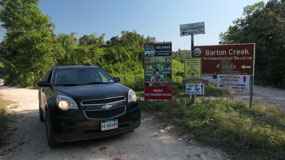
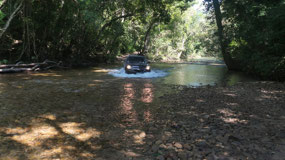
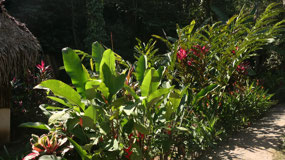
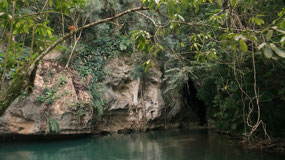
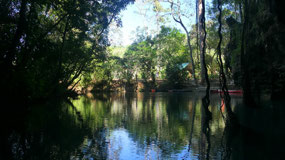
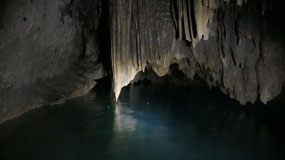
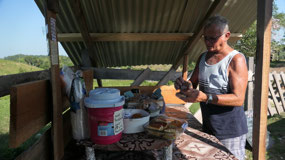
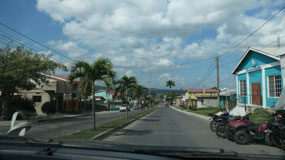


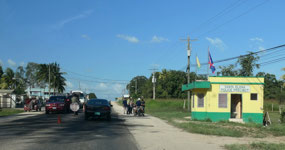
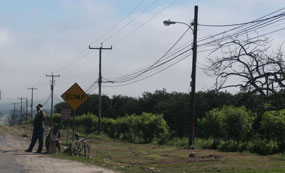
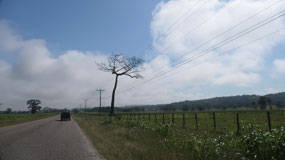
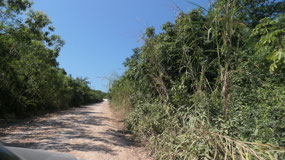
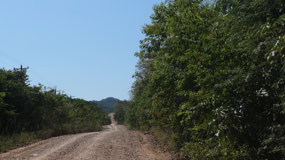
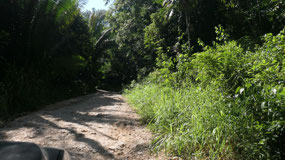
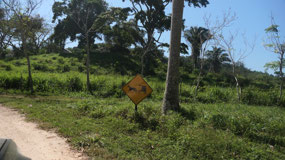
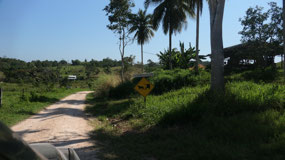
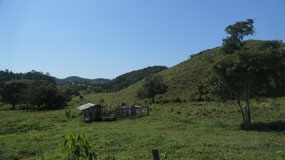
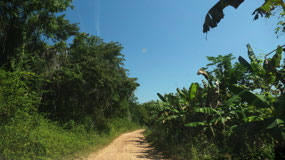
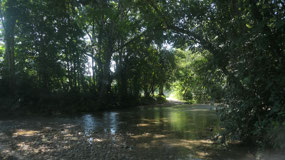
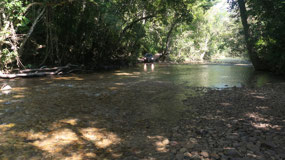
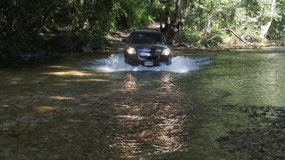
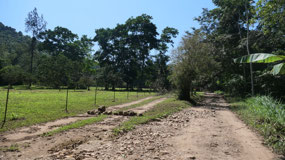
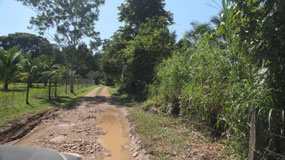
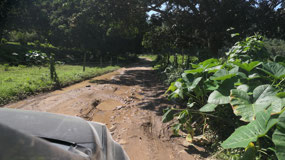
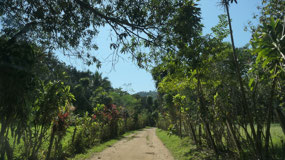
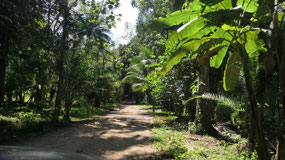
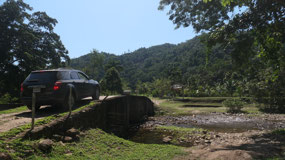
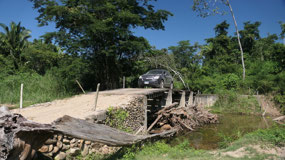
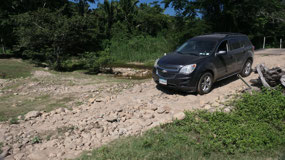
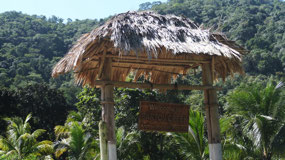
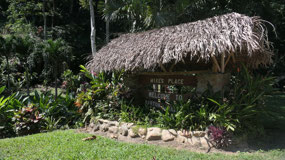
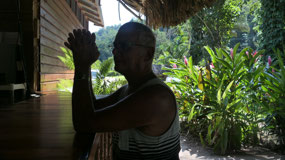
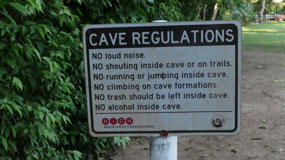
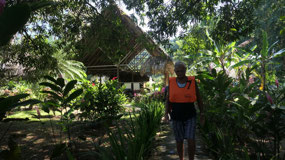
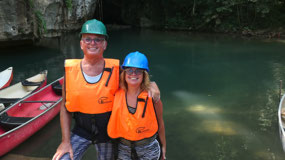
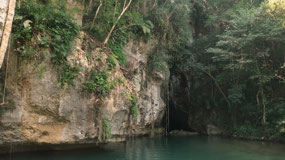
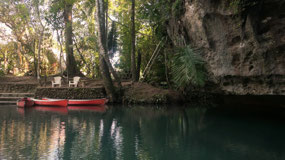
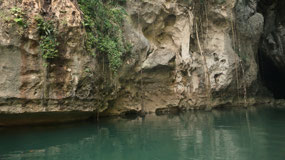
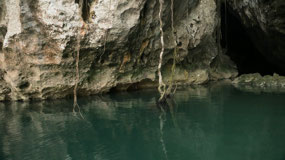
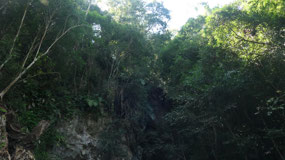
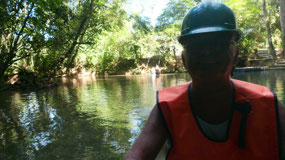
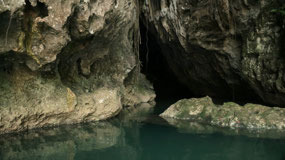
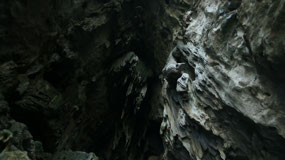
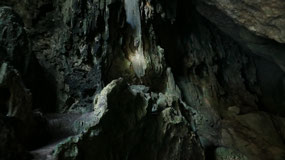
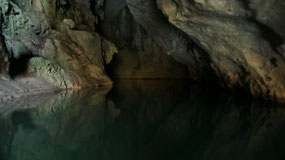
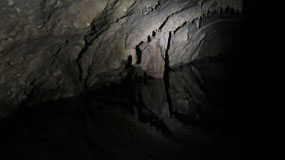
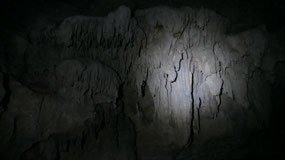
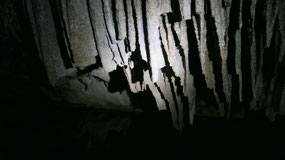
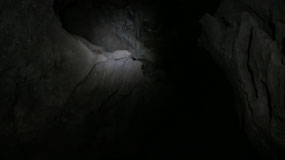
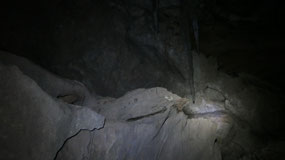
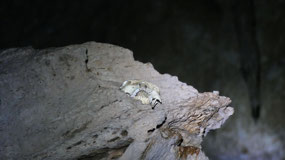
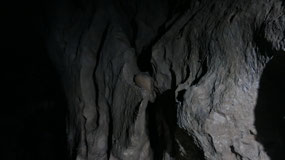
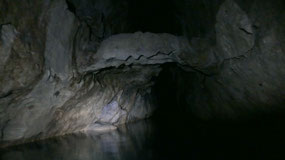
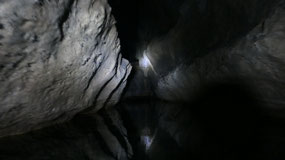
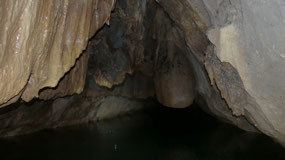
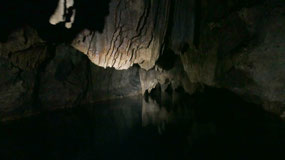
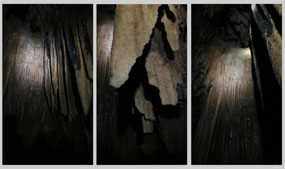
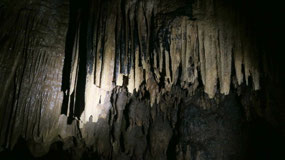
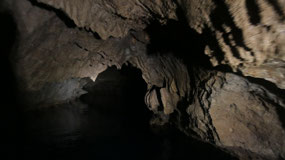
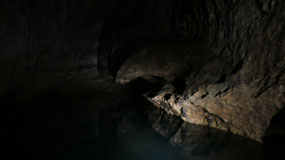
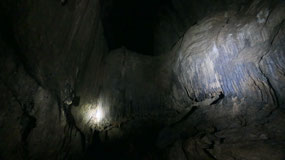
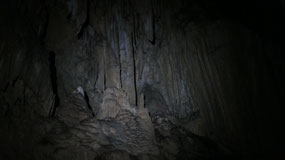
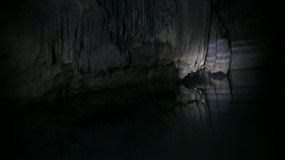
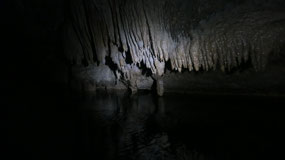
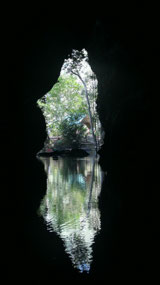
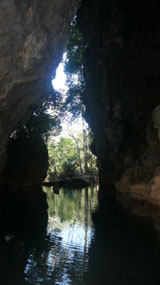
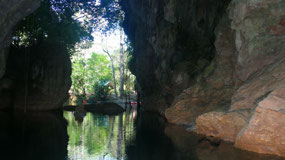
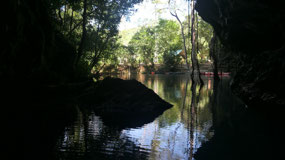
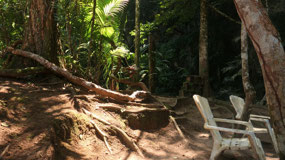
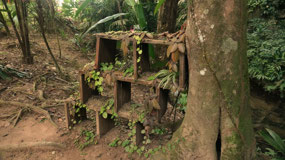
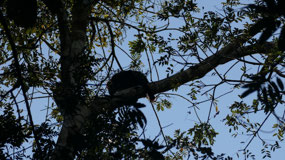
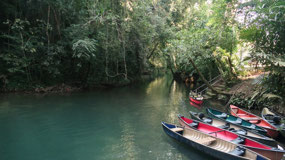
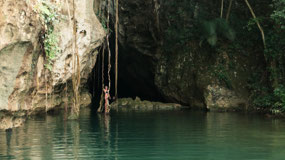
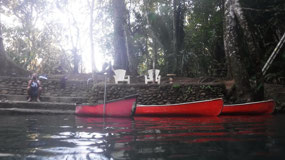
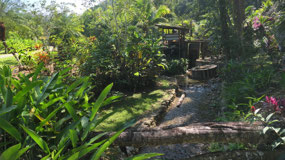
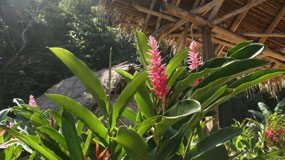
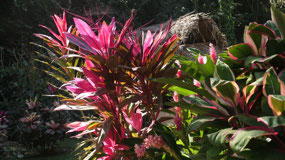
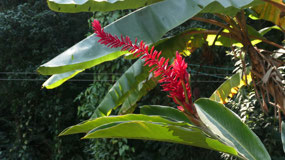
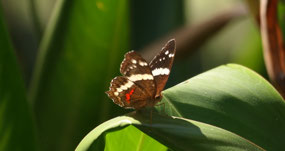
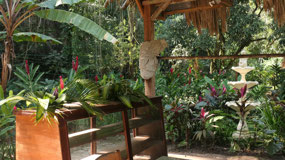
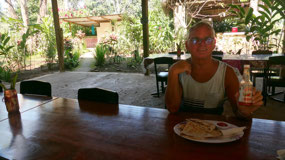
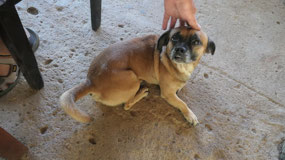
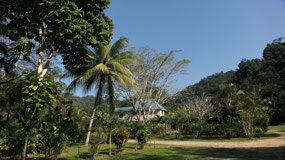
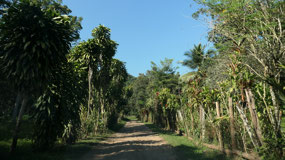
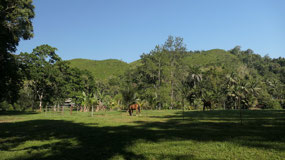
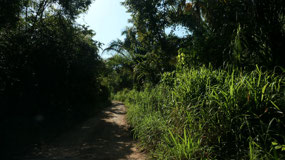
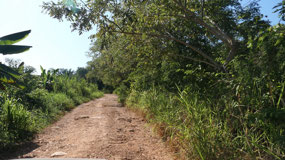
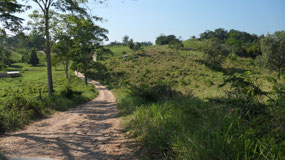
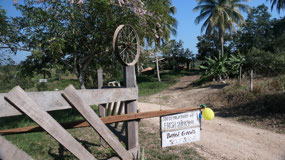
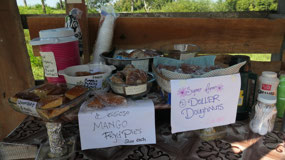
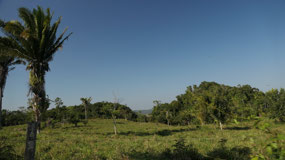
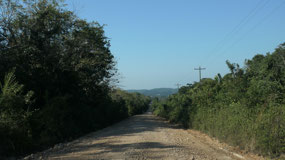
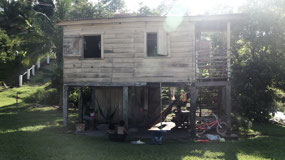
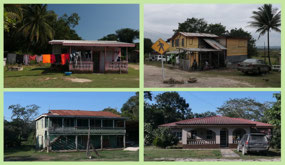
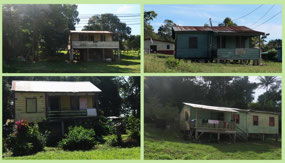
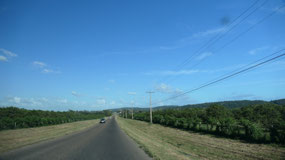
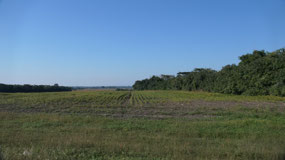
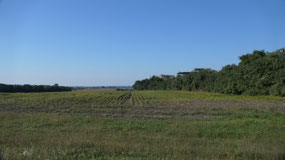
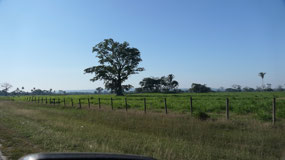
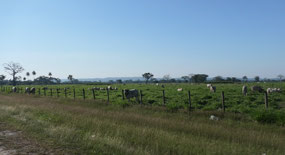
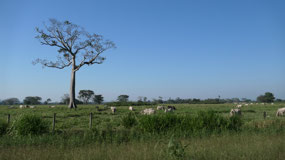
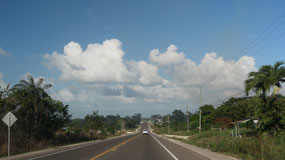
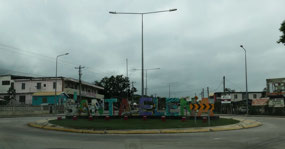
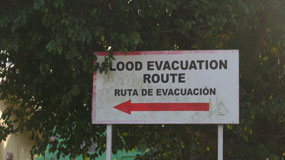
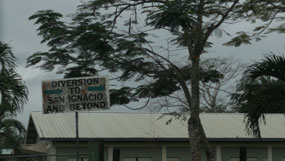
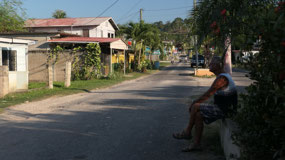
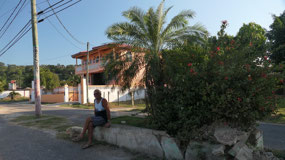
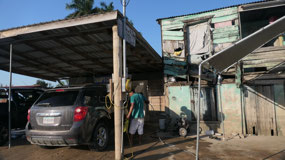
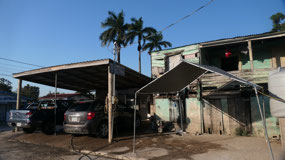
2025-05-22